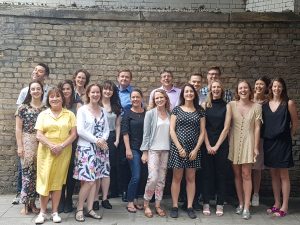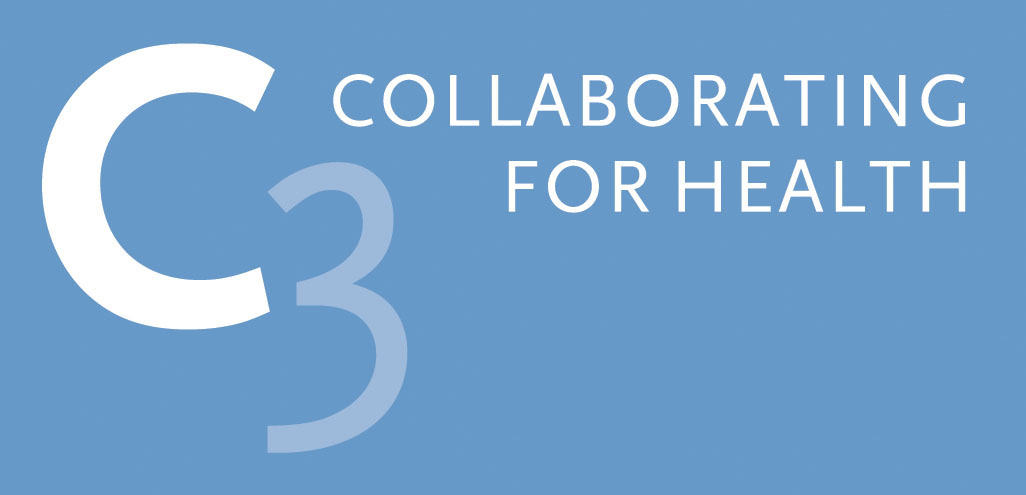Progress never sleeps: ‘Britain’s Healthiest Workplace’ case study
This post, written by Forster Communications’ Kate Parker, is an updated case study related to a piece of work carried out by C3 creating case studies showcasing workplace health initiatives across a range of companies and organisations. We’ll be sharing these case studies over the next few months through our blog.
Creating an inclusive culture is at the heart of everything we do. Strongly embedded flexible working practices, including shared core hours with a flexible start/finish time, and the option to work from home are offered to all employees. Life-long learning is encouraged and the team are in the driving seat of their own personal development with ambitious targets set for time spent on learning and development. Built into personal development reviews is a discussion around the individual’s personal needs to make sure that regular check-ins and reasonable adjustments are being made; whether it’s to their environment or workload.
We incentivise and provide training on elements around our team’s physical health, which we know is fundamentally linked to mental health, like active travel and good nutrition. We run sessions with nutritionists and mindfulness experts, schedule regular running and walking clubs and reward extra holiday for cycling or walking to work.
Crucially, we provide specific support and training on mental health; from themed activities to help reduce the stigma, like paid-for coffee catch ups on Time to Talk day, to training around having sensitive conversations. We undertook an independent workplace health-check comparing the business perspective to our employee’s perception which highlighted areas for development and we have a trained mental health first-aider on the team. Our client work in the last year has included the development of a series of free mental health toolkits for businesses; including mental health, musculoskeletal health, suicide prevention and post-vention (what to do in the aftermath of a suicide). Underlying all of this is regular reporting to the Board on key metrics and indicators across all of these areas, ensuring mental health issues are being discussed at that level.
We also offer lots of perks in order to help attract and retain the best talent; free breakfast and fruit, massages, early summer getaways, an Employee Assistance Programme, paid time off for volunteering, exercise classes during office hours and even trialling new Virtual Reality technology for mediation in the office. Ultimately though, we believe it’s the strong flexibility and support backed up by good communication and employee engagement, rather than a bunch of bananas or a giant Jenga in the office, that really make the difference.

So what does this look like in terms of impact?
Last year we were named Britain’s Healthiest Workplace, in both the ‘overall’ and ‘healthiest employee’ categories – up against 160 organisations with a combined workforce of over 370k. We were also named ‘Best for the World’ in the Overall and Workers categories of B Corporations, putting us in the top 10% of B Corps worldwide – a globally recognised certification for companies who meet rigorous standards of social and environmental performance, accountability, and transparency.
Findings from the BHW survey showed;
- we had 30% lower rates of health related presenteeism and absenteeism than the UK average
- 100% of our employees who participated (96% of the company) were within the healthy range for mental wellbeing.
- 100% of employees who had used healthy food or physical exercise interventions felt that it had improved their health.
- 41% of our employees are subject to at least one dimension of work-related stress (demands, support, change, relationships strains or role clarity) but 67% had felt that our work-life balance interventions had improved their health and wellbeing.
Tracking our own metrics has shown;
- our sickness rate has dropped from 3 days per person per year to 2.2 days, compared to 3.3 days for other PR agencies our size
- employees regularly working from home has increased by 32%, in the last two years, to 54% of employees
- formal flexible working arrangements have increased by 15% in the same period
- one third of the company now cycle to work
- each employee has spent on average 1 day per year volunteering for projects they are passionate about
- two thirds of the team say our Wellness in the Workplace programme has kick-started a sustainable positive change in their lifestyle

What have we learned?
Our experience shows that the most successful ways of supporting employee wellbeing are often the most simple:
Provide employees with really accessible options to help them improve their physical health – free fruit in a bowl in the middle of the office rather than chocolate vending machines or lunchtime walking clubs which even an exercise-phobic employee can enjoy.
Build a culture where people feel safe talking about difficulties – which means being explicit about your mental health policies (and having them!), supporting line managers, and visibly walking the walk when it comes to support for those experiencing poor mental health (including stress and anxiety).
Don’t rest on your laurels – a thriving, productive and happy workforce needs stimulation and new ideas. Try out new wellbeing initiatives and most importantly, talk to your employees – what benefits do they use the most and particularly appreciate.
Working in social change PR inevitably means working with emotionally-charged topics, so we’ve made sure that individuals are given headspace after especially difficult interviews or meetings.
Taking 5 to debrief and share the experience with a colleague provides a critical opportunity to remind each other why this work is so important and the positive impact it will ultimately have.
Interested in more workplace health case studies? We’ve also written about Britvic (addressing musculoskeletal disorders in the workplace), Serco’s Health Champions and Nestlé’s individual health checks.
This work was carried out by C3 and supported by the Health Foundation.

